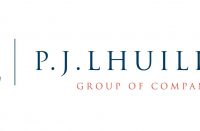The APEC Business Advisory Council (ABAC) is set to propose to APEC economic leaders a range of recommendations that address the challenges of sustained economic growth and of promoting inclusion, resiliency, and sustainability.
ABAC is comprised of the Asia-Pacific region’s top business leaders tasked to provide inputs to APEC. It serves as the official business sector voice in APEC by presenting recommendations that promote the advancement of inclusive growth in the Asia-Pacific region, and ensure greater prosperity and a better quality of life.
Anchored on this year’s theme of “Resilient, Inclusive Growth: A Fair Deal for All,” ABAC’s recommendations are premised on the conviction that an open, predictable, and transparent trade and investment environment for goods and services generates new opportunities for all.
“While much has been achieved, more needs to be done particularly in view of the changing dynamics of the global economy, which create new challenges to equitable and sustained growth. We urge strong action on trade agreements; on the services agenda; for micro, small, and medium enterprises; on the rule of law; for financial systems reform and investment; and sustainability,” said ABAC 2015 Chair Doris Ho.
ABAC also places special focus on promoting the growth and development of MSMEs, considered the backbone of virtually every economy in Asia and the Pacific.
ABAC has organized a line-up of events this November, including the 4th and concluding ABAC Meeting for 2015, the APEC SME Summit, and the ABAC Dialogue with Leaders,
“The region’s vitality depends on the well-being of MSMEs, which account for over 97 percent of enterprises and contribute to 60 to 90 percent of employment in APEC. We call on APEC economies to implement measures that would help MSMEs adopt innovation, gain access to finance, enhance their participation in the global market, and make them more resilient,” said Ho.
ABAC also encourages policy makers to develop policies that will support and strengthen trade and investment linkages between MSMEs and big businesses.
Ho added that the advancements made in promoting economic integration and removing barriers to free trade will be for naught if the benefits of free and open trade, plus the opportunities they create, are not made available to MSMEs.
“ABAC looks forward to working with governments as we build on APEC’s extensive work on regional integration and trade facilitation toward ensuring that these efforts remain relevant and responsive to needs of MSMEs as much as they are to big business,” said Ho.
ABAC is also pressing for the full economic inclusion of women by increasing their representation in the board room, corporate family responsibility, and the integration of women-owned businesses into the global supply chain.
“We want to address barriers that prevent women from having adequate access to capital, education, health, and ownership of land and resources. APEC can lead by example by appointing women to serve on the ABAC,” added Ho.
ABAC was created by APEC Leaders in 1995 to be the primary voice of business in APEC. Each economy has three members who are appointed by their respective Leaders. They meet four times a year in preparation for the presentation of their recommendations to the Leaders in a dialogue that is a key event in the annual Leaders Meeting.
This 2015, ABAC focused on four key priorities: Advancing the regional integration and services agenda; strengthening and facilitating micro-, small-, and medium-sized enterprises’ (MSME) entry into global markets; maximizing innovation and human capital potential; and promoting livable, sustainable cities and resilient communities.







